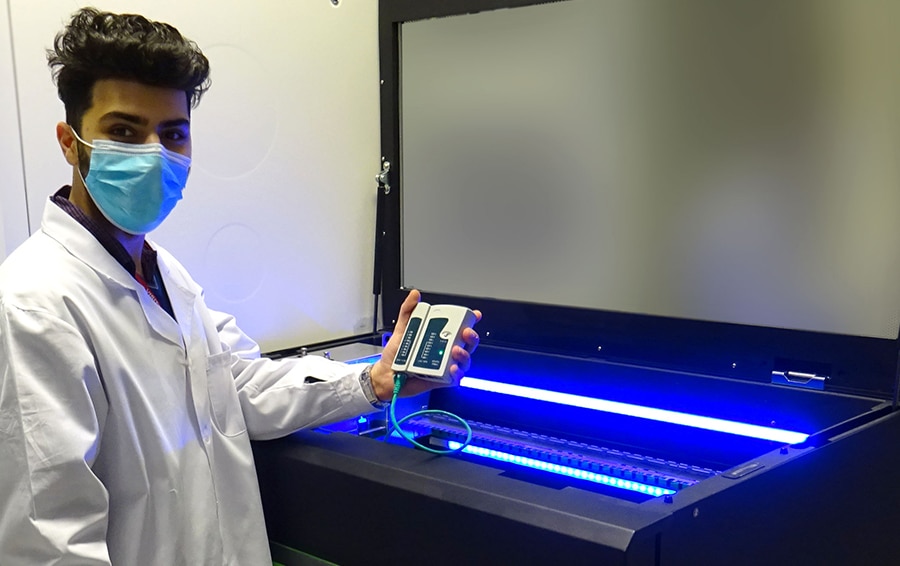With the Covid lockdowns and ongoing government encouragement for better data storage and protection, schools and educational institutions are refreshing their knowledge and technology. The educational industry manages a huge amount of data and the reliance on IT systems has rapidly increased, especially cloud computing. But there is a big question about how this data is stored and secured. Data storage and sustainable cloud provider PeaSoup is urging educational institutions to reduce the risk of IT system failures and cut their carbon emissions by switching to cloud-based data services that are powered by eco-friendly and highly performing liquid immersion cooling technology.
The volume of data and widespread nature of applications across larger educational sites means that cloud-based solutions often work best, but the majority of data management solutions use legacy data centres either on- or off-site. These require huge amounts of energy to keep cool and maintain the reliability of their equipment. Air conditioning and humidification equipment stabilises heat dispersion in data centre buildings, and uninterruptible diesel power supply units ensure continuous service.
The alternative to air-conditioning is to use sustainable carbon reducing liquid immersion technology – the hardware is kept at a near-constant temperature, increasing the longevity of electronic parts, therefore reducing the need for regular replacement, plus this method uses up to 40% less power than a legacy data centre.
Art Malinowski, Head of Marketing at PeaSoup explained: “There’s a considerable worldwide drive for sustainable cloud platforms. Data storage isn’t always the first port of call for switching to more sustainable solutions, but heavy data users such as schools and universities can gain numerous benefits for a surprisingly low cost.”
“Liquid immersion cooling is a quickly emerging frontrunning technology in a crowded cloud/data centre marketplace that answers the Corporate Social Responsibility (CSR) and Sustainability dilemma for data storage, backup and recovery for the data-reliant educational body.”
Carbon neutrality, or net-zero, can be a challenging target to reach in a large educational organisation with many moving parts, particularly with Local Authority guidance changes since Covid. However, data storage is one area where changes are ahead of the curve. PeaSoup, for example, is carbon negative with sustainability at the core of its cloud-based solutions. Despite the futuristic feel of its technology and ideas, the data specialist has been established for many years and has experience in many data-heavy industries.
Most current data centres pump hot air out of the building and into the atmosphere because they use inefficient air conditioning systems to cool their IT infrastructure. Cooling systems absorb huge amounts of energy to work efficiently, plus an uninterruptible power supply is needed to ensure stability and reliability. Solution providers such as PeaSoup can sufficiently reduce data centre footprint, energy consumption and hardware failure, whilst enhancing reliability.
Simple to set up and configure, with little disruption to the day-to-day educational routine, data can be audit compliant and in the unfortunate situation of a data breach, the steps to data recovery are simple and reduce the risk of exposure.
Typically, when data is spread across several locations (for example a university with multiple campuses) it creates the ideal scenario for the cloud hyper-converged architecture that PeaSoup has used since 2014. Hyper-converged architecture makes the IT infrastructure more agile, efficient, outage resilient, and flexible enough to manage the amount of data and displacement typical of a large organisation.
Switching to a sustainable cloud-based service such as PeaSoup Cloud can eliminate many potential problems related to storing large amounts of data, as well as providing a comprehensive review of data storage, gap analysis and backup services.
Not only does this technology offer a sustainable and CSR-friendly source of data storage but can also provide a transferable source of heat which can be used to heat surrounding buildings in the vicinity of the data centre.
The move towards this greener and more planet-friendly technology is driven by governments and consumer awareness about carbon and the potential to reduce output. There is huge potential to reverse the damage caused by the industrialisation of our environment, given the right resources and knowledge we can become better custodians of the planet.
For further information visit www.peasoup.cloud






